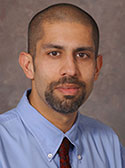![]()
RELFLECTIONS ON REFLECTION
By Lavjay Butani

A battle lost or won is easily described, understood, and appreciated, but the moral growth of a great nation requires reflection, as well as observation, to appreciate it.
-Frederick Douglass
One of the greatest moments in anybody's developing experience is when he no longer tries to hide from himself but determines to get acquainted with himself as he really is.
-Norman Vincent Peale
Reflection can be defined as the deliberate process of analyzing and reframing an event using multiple perspectives (including your own) and viewpoints with the purpose of self growth (‘forward motion’ so to speak). It is, in a way, a deeper form of ‘listening’- to yourself and to others.
Reflection in action then is reflecting while in ‘action’- that is in real time, during our day to day interactions with others.
We all reflect, don’t we? After all, it’s a natural gift and tendency that humans have-we think and think and think ad nauseum. About life, about where we are, where we were and where we are going (or not). About the day that lies ahead, the moments that just passed; our trials and tribulations, the miseries of life and oh yes, sometimes, but rarely so, about how fortunate we are. We still have our jobs, a roof above our heads, our families and loved ones, a plethora of help and a modicum of health. But what do we ‘do’ with those ‘pseudo-reflections?’
All too often-zippo! Empathic, appreciative and sometimes condescending statements come out of our mouth and the very next moment are forgotten and lost in the great unknown, never to be recalled or critically analyzed and acted upon. It is this very last step, the ‘action’ step that is so lacking. Whether due to inertia or the convenient lack of energy or time or because of the universally expounded excuse of ‘what can I, a mere mortal do?’ Some of us, like I myself, are of an ‘intuitive’ personality type-we love to think about and dream of future possibilities and theoretical constructs and cogitate on the fascinating facets of life, but we don’t spend time of what we will actually do.
Critical reflection is defined most, in my opinion, by how we use the reflective process to develop a framework to act differently from how we have in the past, based on our feelings after an event or experience. It is the action towards personal growth, the forward motion that defines those of us who make a difference.
One small but easily observed manifestation of how effective our reflections are can be the words we use when we make resolutions after we contemplate a disturbing of fascinating event, book, movie or conversation. If you see yourself using the word ‘we should’ or ‘they should’ rather that ‘I will’ chances are that your engagement with the event has not been deep enough and the connection not personal enough to move you to action. It may be time to step back and re-think, more deeply, more intensely, exploring different perspectives, and then develop an action oriented plan for yourself. For as Gandhi reminds us: ‘Be the change you want to see.’ Develop an internal locus of control, rather than looking to the environment and blaming it for what is happening. It all begins with you. Between a stimulus and your response to it, there is nothing but free and independent will, your will. Even in times of suffering, as Victor Frankl in ‘Man’s Search for Meaning’ reminds us, we can be worthy of our sufferings and not let our sorrows and our pain dehumanize us. Yes, it takes a lot of courage and resolve, but then what doesn’t.
Feel energized and move towards the righteous path that your soul leads you towards. As Walt Whitman so eloquently states:
‘Henceforth I ask not good fortune, I myself am good fortune
Henceforth I whimper no more, postpone no more, need nothing.
Done with indoor complaints, libraries, querulous criticisms
Strong and content I travel the open road.’
‘Reflect in action’ but beware of reflection ‘inaction’.



